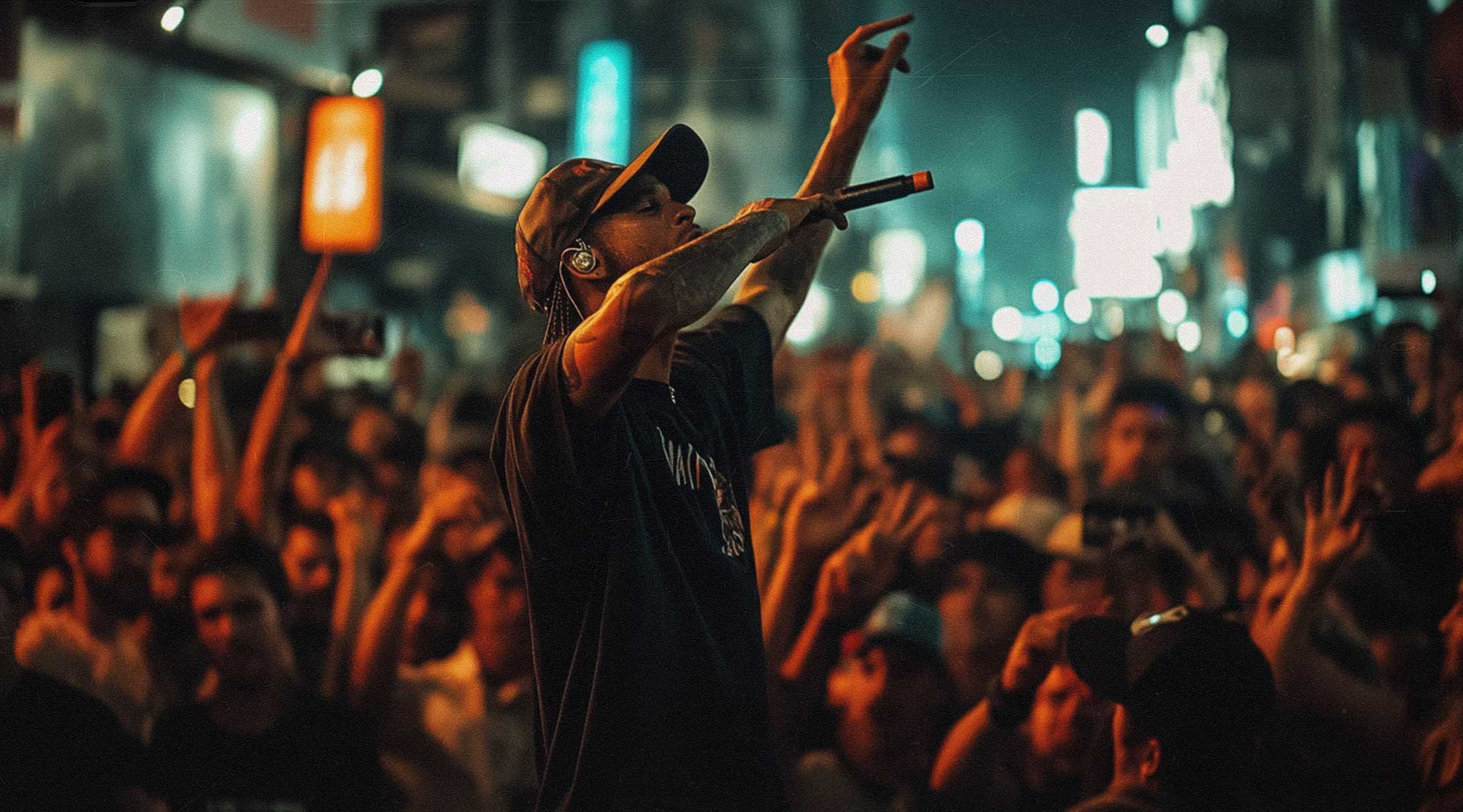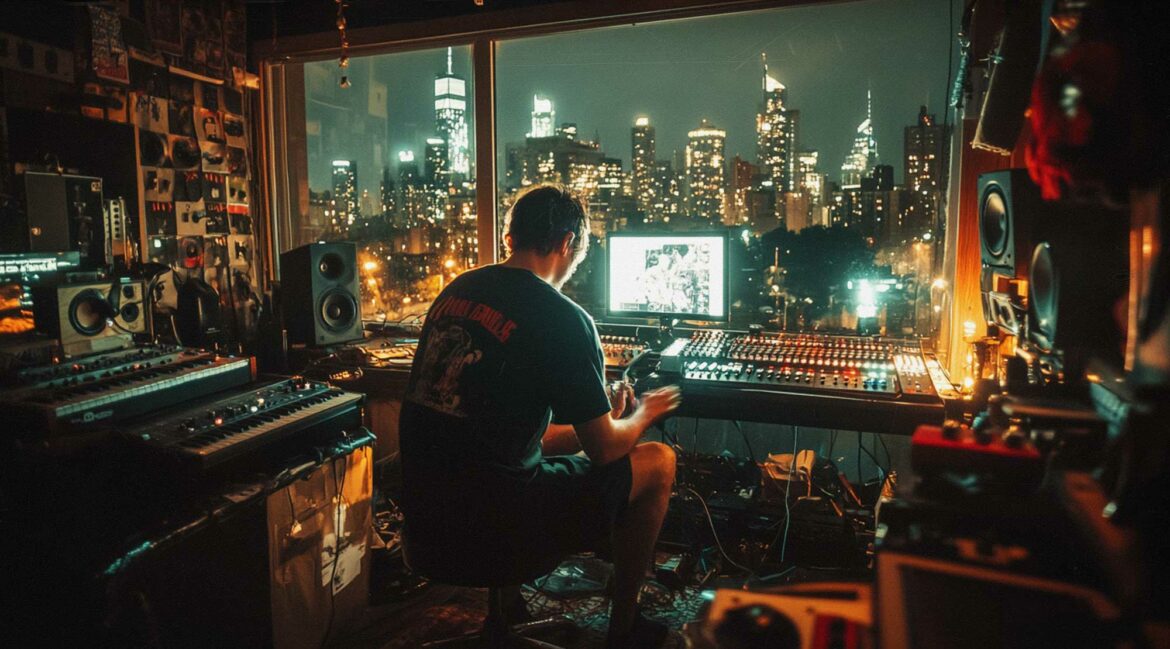Listeners:
Top listeners:
-
 play_arrow
play_arrow
Mad Nonstop
-
 play_arrow
play_arrow
Mad Radio Miami
-
 play_arrow
play_arrow
Mad Radio Bogotá
-
 play_arrow
play_arrow
Mad Radio Medellín
-
 play_arrow
play_arrow
Mad Records
-
 play_arrow
play_arrow
Mad Lo-Fi

Let’s get real for a second: it’s 2024, and after generations of musicians calling for peace, love, and togetherness, the world still feels like one chaotic fire that refuses to be put out. Literally. We’ve got wars, climate disasters, political tension, and people still killing each other. So, where is the secret solution? Music saves us to an extent—or at least it tries. But with all the “Make Love, Not War” anthems of the past, why are we still trapped in a never-ending cycle of violence?
From Woodstock to TikTok: The Evolution of Peace Anthems
Sure, we all know about the ‘60s and ‘70s—the age of peace signs, flowers, and guitars. Artists like John Lennon and Bob Dylan gave us protest songs that were supposed to change minds. “Imagine” still gets played every time the world feels like it’s falling apart. But here’s the thing: we’ve been “imagining” peace for over 50 years, and people are still going to war.
Fast forward to 2024. The world’s chaos remains, but so does music… and it’s still doing something. Only now, instead of Woodstock, it’s TikTok, Spotify, and live streams straight from the frontlines. And while we can’t pretend music is ending wars overnight, it’s evolving as a tool for awareness, solidarity, and, sometimes, straight-up rebellion.
Today’s Artists: From Lyrics to Action
In today’s music scene, activism is at the core of many artists’ identities. Billie Eilish used her 2022 world tour to raise awareness about climate change, and Kendrick Lamar’s “Alright” became the anthem of the Black Lives Matter protests. These aren’t just catchy tracks for the radio; these artists are driving movements, pulling millions into conversations about justice, equality, and, yes—peace.
Beyoncé’s “Black Parade” celebrated Black culture while pushing for economic empowerment, and even Coldplay is using their platform to promote sustainability with eco-friendly tours. These artists aren’t just talking the talk; they’re making moves.
Music’s Revolution: What the Numbers Say
Let’s talk numbers. In 2023, Spotify saw a 200% spike in streams of socially conscious music during global protests. During the 2022-2023 Iranian protests, songs like Shervin Hajipour’s “Baraye” exploded online, connecting millions worldwide to the fight against authoritarian regimes. Despite being censored by the Iranian government, Hajipour’s song became a viral anthem for freedom, even snagging a Grammy for Best Song for Social Change.
It’s not just about individual artists; data proves that music can keep movements peaceful. A 2022 Global Peace Index study found that protests where music played a central role were far more likely to stay non-violent. Why? Because music unites, and it’s hard to wield a weapon when you’re singing together. Picture a crowd belting out “Alright” by Kendrick Lamar—it’s uplifting, energizing, and channels the anger into something productive, not destructive.
Grassroots Music Movements: Not Dead, Just Underground
It’s not just the big names making waves. Independent and underground artists are using music to resist authoritarianism, oppression, and war. In war-torn Ukraine, musicians are performing live amid air raids. Punk bands like Dakh Daughters and rappers like Alyona Alyona have been on the frontlines, mixing music with resistance, giving their country a voice—and a beat—to keep going.
In Palestine, artists like DAM use hip-hop to speak out against violence and occupation. Their music is raw, real, and unapologetic—exactly what we need when governments and leaders fail to deliver peace. These aren’t just songs; they’re tools of rebellion and truth.
Even in the West, grassroots movements are alive. During the Black Lives Matter protests, musicians took to the streets, turning rallies into makeshift stages, with impromptu concerts breaking out in the middle of marches. Music has always been a part of resistance, but now it’s digital and everywhere—even if mainstream media isn’t always paying attention.

Music Tech: Digital Platforms Fueling Activism
In 2024, independent artists aren’t just relying on major labels to get their voices heard. Platforms like Bandcamp, SoundCloud, and Patreon are revolutionizing how artists push political messages and fundraise for causes. These platforms allow musicians to release music directly to their audiences, bypassing the traditional gatekeepers, and using their influence to raise awareness about social and political issues.
Bandcamp Fridays—where the platform waives its fees so artists keep 100% of their earnings—have become a space for musicians to support causes like environmental justice, bail funds, and refugee relief. SoundCloud and Patreon are also empowering artists to connect with fans who want to back their activism, not just their beats. Artists are using these platforms to build communities around their music, giving their activism staying power far beyond a viral moment.
For artists pushing political messages, these platforms offer a lifeline to grassroots activism that might otherwise get drowned out by commercial pop.
Music Heals, but Are We Listening?
Here’s the kicker: while music can rally us, inspire us, and keep things peaceful, it’s not a magic bullet. We love hearing artists drop bars about peace, but how much is really changing on the ground? There’s a frustrating disconnect between the messages we hear and the actions we see. Governments are still bombing, soldiers are still fighting, and politicians are still failing to deliver on the peace that these songs preach.
But—and this is a big but—music still plays a crucial role in keeping hope alive. It’s not just about instant solutions; it’s about maintaining the possibility of change. A 2023 United Nations report highlighted the importance of cultural diplomacy, naming music as a vital tool in global peacebuilding efforts. This work is happening in grassroots movements, digital airwaves, and even in concert halls. We just need to start listening more closely.
How You Can Help (Yes, You)
So, here’s the deal: if you’re wondering, “What can I do?” — you’re already on the right track. Music is a universal language that crosses borders, and you can get involved today. Share socially conscious playlists, support indie artists pushing for peace, attend benefit concerts, or help fundraise for humanitarian causes. Every stream, every post, every dollar spent on merch sends a message: peace matters.
If you’re a musician, use your platform—whether it’s on SoundCloud, YouTube, or your local streets. Your voice matters. You don’t have to be famous to make a difference. Write, sing, or play music that speaks out against injustice, inequality, and violence. Who knows? Your track could be the next anthem that sparks a revolution.
Final Note
Can music save the world? Maybe not on its own. But it sure as hell isn’t staying silent while everything burns. From global icons like Beyoncé and Kendrick Lamar to indie resistance bands in war zones, artists are using their platforms to keep the conversation about peace alive.
It’s time we pay attention—and more importantly, get involved. Because if we keep tuning out, we might just miss the soundtrack to the revolution.
Escrito por Mad Radio


